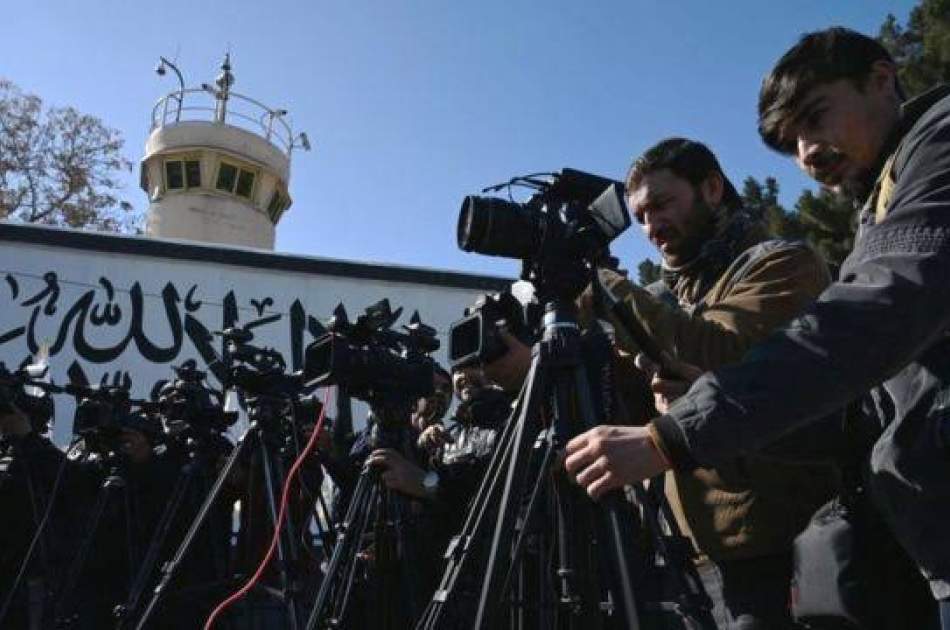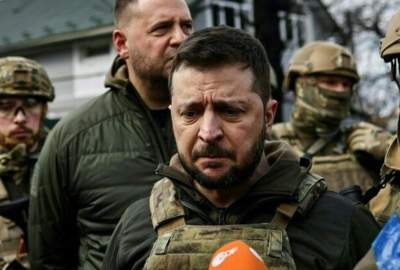Afghan Voice Agency (AVA) - Today's view: It cannot be denied that the restrictions on the work of the media have increased and the reason is that the system is new, the security is fragile and vulnerable, the enemies of the country are very active and one of the levers Their concern is the media, for this reason, the government's security sensitivities increase and naturally the restrictions on the media are also intensified.
Publish dateSunday 6 November 2022 - 11:06
Story Code : 260578
The Office of the United Nations Political Mission in Afghanistan (UNAMA) recently reported that since August 2021 (since the resumption of power of the Islamic Emirate), it has registered cases of human rights violations against more than 200 journalists in the country.
UNAMA wrote that most of these cases included arbitrary arrests, mistreatment, threats and intimidation of journalists.
In a tweet on the occasion of November 2nd, "World Day to End Impunity for Crimes against Journalists", the agency wrote that the media in Afghanistan is in danger.
UNAMA wrote: "On this day, let's honor media workers and defend truth, justice and human rights for all."
UNAMA states: "The media's suffocation and the culture of impunity must end." "Healthy societies have a free press."
Western institutions have claimed that since the domination of the Islamic Emirate in the country, about 60% of Afghan media have been blocked and more than 50% of media workers have lost their jobs.
There is no doubt that last year's political developments have had a profound impact on the media and journalists. Many privileges may no longer exist, especially in financial and economic matters, most of the media have faced great problems. This effect has been heavier and more intense on NGO media, diplomatic media and those affiliated with western organizations or media affiliated with the security agencies of the previous government.
This has caused thousands of people to become unemployed, hundreds of media outlets to stop working, and many of those who used to make a living in this way can no longer afford to meet their living expenses.
An important point to note is that the Taliban are not responsible for the closure of hundreds of media outlets; because no media has been directly blocked by the government so far; The main problem is the financial crisis of the media and it is obvious that the government is not able to finance free and non-governmental media in the current situation.
On the other hand, some laws have either been canceled and are no longer in force, or have been replaced by new laws, which may be considered a violation of freedom of expression by some media according to their approach and policy; Because it limits the unbridled freedoms of the past and does not allow them to violate the Sunnah and Sharia.
In addition, a number of media in the past did not impose any limits on freedom of expression. This is despite the fact that even according to the western tolerant definitions, freedom is allowed and legitimate to the extent that it does not violate the freedom of others.
After the fall of the republican system, this possibility is no longer available for the aforementioned media, for this reason, they think that their freedom has been violated or at least they pretend that they no longer have the right to freedom of expression; This is despite the fact that under any circumstances, regardless of the regime ruling the country, freedom must have limits and frameworks.
However, it cannot be denied that the restrictions on the work of the media have increased and the reason is that the system is new, the security is fragile and vulnerable, the enemies of the country are very active and one of their levers is the media. For this reason, the security sensitivities of the government increase and naturally the restrictions on the media are also intensified.
On the other hand, the spokespersons of the government agencies have not yet been able to establish their professional communication with the journalists properly, and one of the reasons for this, along with the unprofessionalism of the press agencies of the government agencies, is the same security sensitivities; Because the spokesmen of some institutions are not allowed to interview all media on all issues independently, and in this way, journalists and media think that their right to access information is limited.
Considering these issues, international organizations should keep the side of justice and fairness in reflecting the media situation in Afghanistan under the domination of the "Islamic Emirate", understand the legitimate limitations and sensitivities of the government, recognize the current fragile conditions, the effects It is natural to evaluate the collapse of a system and the establishment of a new system on the media and journalists and not consider the government alone responsible for all the failures in the field of media and journalists.
Of course, in the meantime, as mentioned, the government is not blameless, and it must eliminate the inadequacies and problems that it is responsible for creating or solving, so that a media society has legitimate freedom, legitimate limitations, and legitimate responsibility.
UNAMA wrote that most of these cases included arbitrary arrests, mistreatment, threats and intimidation of journalists.
In a tweet on the occasion of November 2nd, "World Day to End Impunity for Crimes against Journalists", the agency wrote that the media in Afghanistan is in danger.
UNAMA wrote: "On this day, let's honor media workers and defend truth, justice and human rights for all."
UNAMA states: "The media's suffocation and the culture of impunity must end." "Healthy societies have a free press."
Western institutions have claimed that since the domination of the Islamic Emirate in the country, about 60% of Afghan media have been blocked and more than 50% of media workers have lost their jobs.
There is no doubt that last year's political developments have had a profound impact on the media and journalists. Many privileges may no longer exist, especially in financial and economic matters, most of the media have faced great problems. This effect has been heavier and more intense on NGO media, diplomatic media and those affiliated with western organizations or media affiliated with the security agencies of the previous government.
This has caused thousands of people to become unemployed, hundreds of media outlets to stop working, and many of those who used to make a living in this way can no longer afford to meet their living expenses.
An important point to note is that the Taliban are not responsible for the closure of hundreds of media outlets; because no media has been directly blocked by the government so far; The main problem is the financial crisis of the media and it is obvious that the government is not able to finance free and non-governmental media in the current situation.
On the other hand, some laws have either been canceled and are no longer in force, or have been replaced by new laws, which may be considered a violation of freedom of expression by some media according to their approach and policy; Because it limits the unbridled freedoms of the past and does not allow them to violate the Sunnah and Sharia.
In addition, a number of media in the past did not impose any limits on freedom of expression. This is despite the fact that even according to the western tolerant definitions, freedom is allowed and legitimate to the extent that it does not violate the freedom of others.
After the fall of the republican system, this possibility is no longer available for the aforementioned media, for this reason, they think that their freedom has been violated or at least they pretend that they no longer have the right to freedom of expression; This is despite the fact that under any circumstances, regardless of the regime ruling the country, freedom must have limits and frameworks.
However, it cannot be denied that the restrictions on the work of the media have increased and the reason is that the system is new, the security is fragile and vulnerable, the enemies of the country are very active and one of their levers is the media. For this reason, the security sensitivities of the government increase and naturally the restrictions on the media are also intensified.
On the other hand, the spokespersons of the government agencies have not yet been able to establish their professional communication with the journalists properly, and one of the reasons for this, along with the unprofessionalism of the press agencies of the government agencies, is the same security sensitivities; Because the spokesmen of some institutions are not allowed to interview all media on all issues independently, and in this way, journalists and media think that their right to access information is limited.
Considering these issues, international organizations should keep the side of justice and fairness in reflecting the media situation in Afghanistan under the domination of the "Islamic Emirate", understand the legitimate limitations and sensitivities of the government, recognize the current fragile conditions, the effects It is natural to evaluate the collapse of a system and the establishment of a new system on the media and journalists and not consider the government alone responsible for all the failures in the field of media and journalists.
Of course, in the meantime, as mentioned, the government is not blameless, and it must eliminate the inadequacies and problems that it is responsible for creating or solving, so that a media society has legitimate freedom, legitimate limitations, and legitimate responsibility.
avapress.com/vdchqvni623n-md.01t2.html
Tags
Top hits







